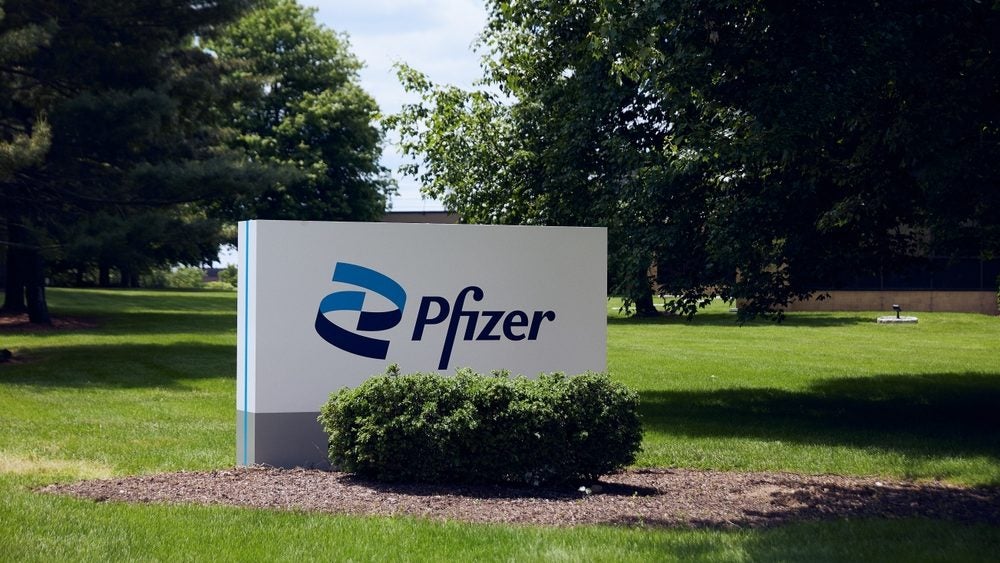Rituximab is under clinical development by Biogen and currently in Phase II for Schizophrenia. According to GlobalData, Phase II drugs for Schizophrenia have a 44% phase transition success rate (PTSR) indication benchmark for progressing into Phase III. GlobalData’s report assesses how Rituximab’s drug-specific PTSR and Likelihood of Approval (LoA) scores compare to the indication benchmarks. Buy the report here.
GlobalData tracks drug-specific phase transition and likelihood of approval scores, in addition to indication benchmarks based off 18 years of historical drug development data. Attributes of the drug, company and its clinical trials play a fundamental role in drug-specific PTSR and likelihood of approval.
Rituximab overview
Rituximab (MabThera, Rituxan, Ristova) is an anti-neoplastic agent. It is formulated as an injectable concentrate for solution for intravenous route and solution for subcutaneous route of administration. Rituximab intravenous formulation is indicated for the treatment of previously untreated adult patients with stage III-IV follicular lymphoma in combination with chemotherapy; as maintenance therapy is indicated for the treatment of adult follicular lymphoma patients responding to induction therapy; as monotherapy indicated for treatment of adult patients with stage III-IV follicular lymphoma who are chemoresistant or are in their second or subsequent relapse after chemotherapy; for the treatment of adult patients with CD20 positive diffuse large B cell non-Hodgkin’s lymphoma in combination with CHOP (cyclophosphamide, doxorubicin, vincristine, prednisolone) chemotherapy; in combination with chemotherapy is indicated for the treatment of pediatric patients (aged ≥ 6 months to < 18 years old) with previously untreated advanced stage CD20 positive diffuse large B-cell lymphoma (DLBCL), Burkitt lymphoma (BL)/Burkitt leukemia (mature B-cell acute leukemia) (BAL) or Burkitt-like lymphoma (BLL) and for the treatment of patients with previously untreated and relapsed/refractory CLL. Rituximab in combination with methotrexate is indicated for the treatment of adult patients with severe active rheumatoid arthritis who have had an inadequate response or intolerance to other disease-modifying anti-rheumatic drugs (DMARD) including one or more tumor necrosis factor (TNF) inhibitor therapies; in combination with glucocorticoids, is indicated for the treatment of adult patients with severe, active granulomatosis with polyangiitis (Wegener’s) (GPA) and microscopic polyangiitis (MPA); in combination with glucocorticoids, is indicated for the induction of remission in pediatric patients (aged ≥ 2 to < 18 years old) with severe, active GPA (Wegener’s) and MPA and for the treatment of patients with moderate to severe pemphigus vulgaris (PV). Rituximab subcutaneous formulation is indicated in adults for Non-Hodgkin’s lymphoma (NHL): for previously untreated patients with stage III-IV follicular lymphoma in combination with chemotherapy; as maintenance therapy is indicated for the treatment of follicular lymphoma patients responding to induction therapy and for the treatment of patients with CD20 positive diffuse large B cell non-Hodgkin’s lymphoma in combination with CHOP (cyclophosphamide, doxorubicin, vincristine, prednisolone) chemotherapy. Rituxan is indicated for the prevention of recurrence of neuromyelitis optica spectrum disorder (including neuromyelitis optica).
It is under development for neuromyelitis optica (Devic’s syndrome), post-transplant lymphoproliferative disorder, refractory chronic inflammatory demyelinating polyneuropathy (CIDP), idiopathic membranous nephropathy with nephrotic syndrome (membranous glomerulonephritis), fibrillary glomerulonephritis, systemic sclerosis, melanoma, mucosa-associated lymphoid tissue lymphoma, schizophrenia spectrum disorder and obsessive-compulsive disorder and for pediatric patients with severe, active GPA (Wegener’s), marginal zone B-cell lymphoma, nodal marginal zone B-cell lymphoma, extranodal marginal zone B-cell lymphoma (mucosa-associated lymphoid tissue or MALT-lymphoma), splenic marginal zone B-cell lymphoma, microscopic polyangiitis (MPA), previously untreated advanced stage CD20 positive diffuse large B-cell lymphoma (DLBCL) and Burkitt lymphoma (BL)/Burkitt leukemia (mature B-cell acute leukemia) (BAL) or Burkitt-like lymphoma (BLL). It was under development for lupus nephritis, membranous nephropathy, refractory myasthenia gravis, Sjogren's syndrome, anti-neutrophil cytoplasmic antibody-associated vasculitis (ANCA vasculitis), systemic lupus erythematosus, hemophilia A, idiopathic thrombocytopenic purpura (immune thrombocytopenic purpura), granulomatosis with polyangiitis (GPA) or microscopic polyangiitis (MPA) in the US, primary progressive multiple sclerosis (PPMS), polymyalgia rheumatica (PMR) and relapsing-remitting multiple sclerosis.
Biogen overview
Biogen is a biopharmaceutical company that discovers, develops, and delivers drugs and biosimilars for the treatment of various neurological and neurodegenerative diseases. The company’s marketed products include Avonex (interferon beta-1a), Vumerity (diroximel fumarate), Tysabri (natalizumab), Tecfidera (dimethyl fumarate), Fampyra (prolonged-release fampridine tablets), and Plegridy (peginterferon beta-1a) for the treatment of multiple sclerosis (MS); Spinraza (nusinersen) for spinal muscular atrophy (SMA); Aduhelm (aducanumab-avwa) for Alzheimer’s disease, and Fumaderm (fumaric acid esters) for severe plaque psoriasis. It has several product candidates targeting various indications such as MS, Parkinson’s disease, Lupus, Depression, CNS and neuromuscular disorders, Amyotrophic Lateral Sclerosis, and Alzheimer’s disease. The company sells its products through a direct sales force, marketing groups, and distributors in the Americas, Europe, Asia, and other territories. Biogen is headquartered in Cambridge, Massachusetts, the US.
For a complete picture of Rituximab’s drug-specific PTSR and LoA scores, buy the report here.
Premium Insights
From

The gold standard of business intelligence.
Blending expert knowledge with cutting-edge technology, GlobalData’s unrivalled proprietary data will enable you to decode what’s happening in your market. You can make better informed decisions and gain a future-proof advantage over your competitors.






